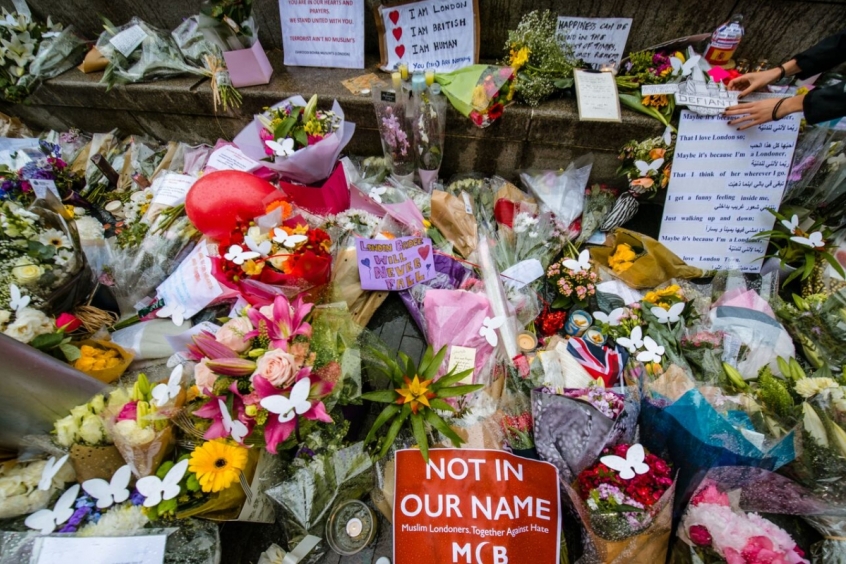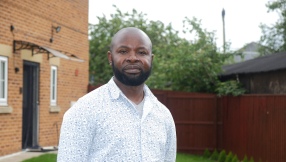Terrorist attacks are not a new thing in large cities in the UK. Back in the '80s and '90s there were people who didn't want to travel to London for fear of IRA bombs. I don't recall politicians or media from that time saying repeatedly, 'These terrorists are not Catholic.' We knew they were, and we knew that Catholic identity was one part of the toxic mix that fomented terrorism but we also knew that they in no way represented our Catholic neighbour.
Yet after the latest terrorist incidents, time and again we hear politicians and others saying: 'These terrorists are not Muslims' and that this is not Islam.

Is this true? Are these men of violence, claiming to act in the name of Islam, with the name of Allah on their lips, really not Muslim? Does Islam have something to answer for as violence is perpetrated in its name?
Catholicism in Ireland and Northern Ireland has had to do real soul searching in the light of violence and terrorism done in its name. This has included recognition of being the victims of injustice. It also includes the mix of nationalism, politics and religious identity. Another factor is the history of mutual violence and antipathy. Lastly there is the theology that is convinced of its self-righteousness. Christianity is woven through this.
Just as Christianity could not absolve itself from violence in its communities, nor can our Muslim communities. There must be some self-examination that recognises the issues of perception of victimhood, nationalism, politics and religious identity. Theology, and streams of thinking within that theology, must be grappled with and recognised.
Concerning the latest Jihadi terrorism, much has been written about the issues of victimhood, foreign policy and politics. Most of those who espouse violent jihadism in Europe are second-generation Muslims who have lost their connection with their country of origin and have failed to integrate into Western societies. Theirs is an understanding of Islam removed from cultural background and detached from any sense of belonging. This identity vacuum feeds nihilistic feelings with suicidal impulses. Such people gravitate to violence for significance and meaning.
This is part of the mix, but it's not the whole story. There is also the theological, violent jihadism justified through Quranic interpretation and reading of the traditions. This takes the 109 violent verses in the Quran, such as sura 2:191-193 which calls for killing of the unbeliever, and applies them as if they are foundational and without context. This is arguable but it's a stream of interpretation that has an internal logic to it with strong historical support.
Many streams of Islamic interpretation dispute this, and hopefully will move to the fore as time goes on. However, times of conflict, such as the Iran-Iraq war see these verses being drawn on as justification for the violence. The more relationships with the secular West are defined by conflict the more these will continue to resonate.
Behind the violent jihadi understandings of Islam there are also mainstream attitudes that have set a milieu in which violent ideology found a place. These are attitudes that I've met in Muslim communities throughout the UK. Such attitudes include seeing non-Muslims as somehow unclean and inferior; this is sometimes linked with unsubtle racist attitudes. The description of non-Muslims as Kufr (infidel) and seeing pork eating, alcohol drinking, scantily dressed neighbours supports this self-directed sense of moral superiority of cleanliness. In the UK most Muslims are of a South Asian ethnicity, and they are not immune from racism. To be 'pale' is good and 'dark' is looked down upon. Tensions are often fed when (paler) Muslims look down on non-Muslim black people.
All communities sometimes bolster self-belonging and self-identity by labelling the 'other' as dirty, inferior and worthy of disdain. Christians do this. However, within Christianity there also exists a strong theological impulse to not label the other as unclean. Jesus' openness to befriend Samaritans, the parable of the good Samaritan, Peter's vision in Acts, and the openness to Gentile inclusion lead by the Holy Spirit all challenge the labelling of others as 'dirty.'
When I brought this up with Muslim colleagues once and asked if there was a similar theological impulse for openness within Islam, I was answered by a flat: 'No, calling others dirty doesn't happen in Islam.' When I challenged this with experience and cultural examples the reply was 'Oh, but that's not Islam', followed by conversation about how the family home had, and often still has, cutlery reserved solely for outsiders. This attitude is often magnified when looking at male attitudes to women which, at its worst, feeds into the scandals such as that which occurred in Rotherham. The attitude of moral superiority of cleanliness is one that I would like to see my Muslim colleagues tackle head on theologically.
Linked to this notion of superiority is a theology that has been worked out from positions of dominance. Most Islamic theology has been worked out within positions of power and assumes that it will be in power. Where it wasn't in power, such as the British Raj, we often saw purity movements emerge, such as the Deobandi movement which is represented in the majority of mosques in the UK today. The Deobandi movement, like all purity movements, saw that Muslim communities had lost power and called for a return to pure religion so that God could once again bless them. After all, the reason they had lost power must have been because they had strayed from the straight path. To return to purity would be to return to power. Again, I think our Muslim colleagues need to look to establish a theology that accepts living without power, in multi-cultural settings where there is a separation of religion and power.
Christians can be racist, can have a sense of moral superiority and can think of others as dirty and unclean. Christians can seek political power and assume a right to govern. However, there is a significant difference between Islam and Christianity. While both communities can be deeply flawed and sinful, both look to an ideal. Both look to a perfect example. For Christianity, this is Jesus and for Islam this is Muhammad. At the foundation of Jesus' life is the cross, the laying down of power, the accepting of weakness and identification with a broken world unto death (and resurrection!). At the foundation of Muhammad's life is the Hijra, the taking up of political power, of warfare, statesmanship and governance.
Is Islam inherently violent? Muslim communities are as deeply flawed and sinful as Christian communities. I believe a significant difference between Islam and Christianity is the example of their ideal. One will, in the end, seek power and governance, the other will, in the end, embrace the cross and weakness. Both will misuse violence, but does Islam have the wherewithal to embrace living where it is not dominant? I hope so, but I'm not so sure.
Dr Colin Edwards is Vice Principal of Redcliffe College and has worked in Muslim contexts in South Asia since 1990.













